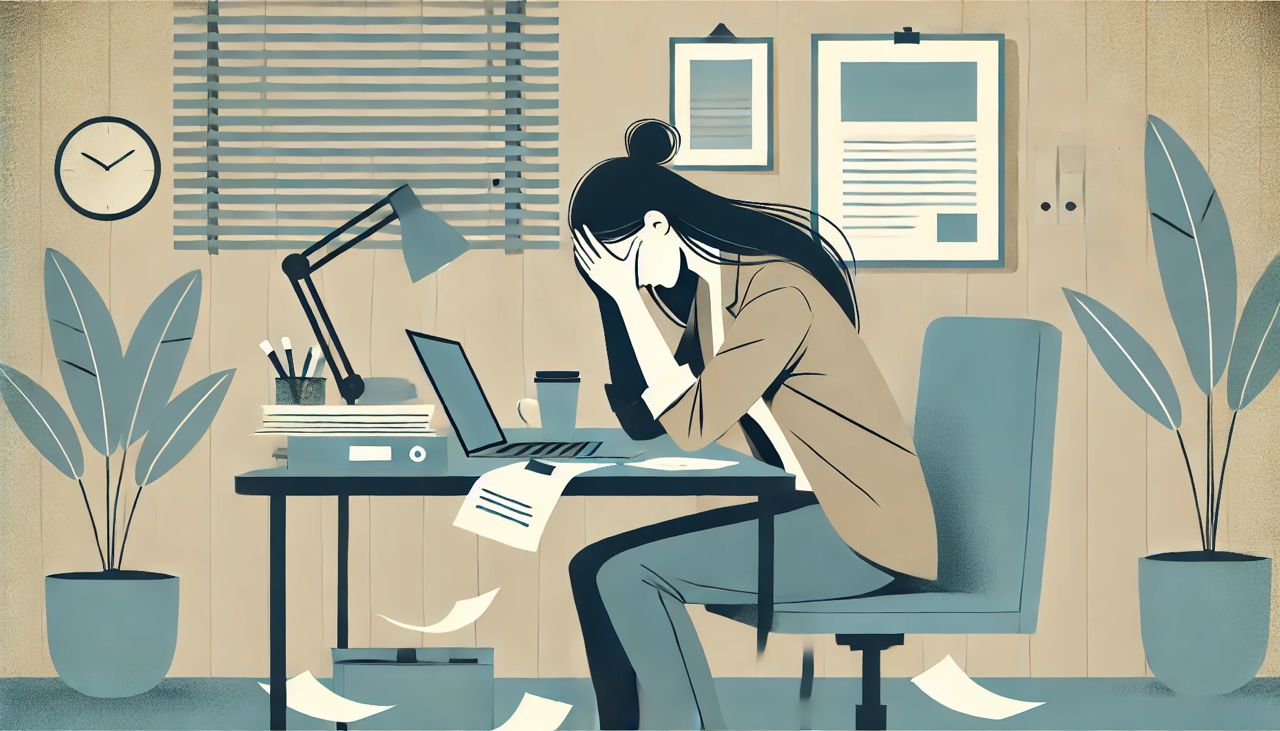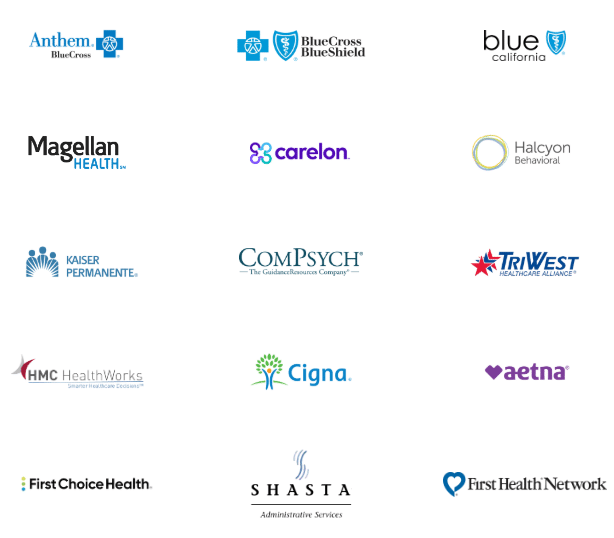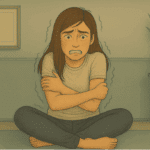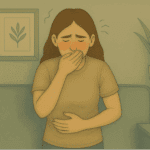Key Takeaways
- Intense anxiety can precipitate temporary psychotic episodes, characterized by symptoms like hallucinations and delusions.
- Anxiety-induced psychosis is distinguishable from continuous psychotic disorders and requires early recognition and timely treatment.
- The role of genetic factors and experiences like trauma or chronic stress can significantly influence the onset of anxiety-induced psychosis.
- Treatment options for anxiety-induced psychosis include cognitive behavioral therapy (CBT) and antipsychotic medications.
- A Mission for Michael provides specialized care for psychosis and psychotic disorders, using a combination of evidence-based therapies and holistic approaches to support recovery and enhance mental health management.
Exploring the Link Between Anxiety and Psychotic Episodes
Can Anxiety Lead to Psychosis?
Anxiety can indeed lead to temporary psychotic episodes, known as anxiety-induced psychosis. This condition arises when extreme anxiety causes episodic symptoms such as hallucinations and delusions.
Anxiety-induced psychotic episodes are characterized by severe distortions in reality perception triggered by overwhelming anxiety, leading to significant challenges in an individual’s interaction with their surroundings. Unlike persistent psychotic disorders, however, anxiety-induced psychosis is transient and typically resolves with therapy.
Early recognition and timely treatment are crucial for managing these episodes effectively. With the right care, individuals can manage symptoms and maintain a stable mental state.
Founded in 2010, A Mission For Michael (AMFM) offers specialized mental health care across California, Minnesota, and Virginia. Our accredited facilities provide residential and outpatient programs, utilizing evidence-based therapies such as CBT, DBT, and EMDR.
Our dedicated team of licensed professionals ensures every client receives the best care possible, supported by accreditation from The Joint Commission. We are committed to safety and personalized treatment plans.
Symptoms of Anxiety-Induced Psychosis
Common Symptoms
| Symptom Category | Description |
| Auditory and Visual Hallucinations | Hearing voices or seeing things that are not present. |
| Delusions | Holding strong, false beliefs that remain unchanged even when presented with conflicting evidence. |
| Disorganization | Experiencing difficulty in organizing thoughts, leading to confusion and incoherent speech. |
| Paranoia | Feeling an intense and unreasonable distrust or suspicion of others. |
Severity and Duration
Some individuals may encounter brief, mild symptoms, whereas others face longer and more severe manifestations. Timely medical intervention and the person’s overall mental health significantly influence the duration of the psychotic episodes.
Shared Features with Other Mental Health Conditions
While anxiety-induced psychosis can resemble conditions like schizophrenia or bipolar disorder in terms of symptoms, it is distinct due to anxiety being the primary trigger. This differentiation is critical for accurate diagnosis and effective treatment planning, ensuring that interventions are appropriately targeted to manage anxiety as a root cause.
Causes and Triggers

Genetic Factors
A family history of similar episodes or disorders related to anxiety or psychosis can increase the risk of developing this condition. Understanding genetic predispositions is crucial in mental health assessments, as it can guide the creation of personalized treatment plans, potentially enhancing therapeutic outcomes.
Role of Trauma and Stress
Experiences such as severe losses, abuse, or exposure to violence can profoundly overwhelm an individual’s mental capacity, leading to severe anxiety that may escalate into psychotic episodes. Chronic stress further compounds this risk by intensifying existing anxiety symptoms, increasing the likelihood of a break from reality.
Diagnosing Anxiety-Induced Psychosis
Initial Assessment Techniques
The diagnostic process for anxiety-induced psychosis begins with a detailed interview focusing on the individual’s symptoms, their duration, and any potential triggers. Mental health professionals may utilize standardized questionnaires to assess the severity of both anxiety and psychotic symptoms.
Professional Evaluation Procedures
Following the initial assessment, a comprehensive evaluation by a psychiatrist or psychologist is often required to gain a deeper understanding of the individual’s mental health. This may include psychological testing, discussions with family members, and a review of the person’s medical and psychiatric history to exclude other possible causes of psychosis, such as substance abuse or underlying medical conditions.
Differential Diagnosis
Differential diagnosis is crucial in distinguishing the symptoms of anxiety-induced psychosis from other mental health disorders such as schizophrenia or bipolar disorder. This step ensures that the treatment provided is appropriate for the specific condition. For example, whereas schizophrenia may require antipsychotic medications,anxiety-induced psychosis might be more effectively treated with therapies targeted at managing anxiety.
Treatment Options

Cognitive Behavioral Therapy (CBT)
CBT helps individuals identify and modify negative thought patterns and behaviors that contribute to anxiety. Techniques included in CBT, such as stress management and coping strategies, empower patients to manage anxiety triggers more effectively. Regular sessions with a trained therapist can significantly improve symptoms of both anxiety and psychosis.
Antipsychotic Medications
Antipsychotic medications are designed to stabilize mood, reduce hallucinations, and delusions, and help the patient maintain a grip on reality. While useful, these medications are generally recommended as part of a broader treatment plan that includes therapy, focusing on the underlying anxiety. Ongoing monitoring by a healthcare professional is crucial to adjust dosages and manage potential side effects.
Role of Family Intervention
Family therapy can enhance communication, reduce stress within the household, and provide a supportive recovery environment. Involving family members in therapy sessions can improve treatment outcomes by providing additional support and understanding.
Alternative Therapies
| Therapy Type | Description |
| Mindfulness Meditation | Helps reduce stress and improve emotional regulation. |
| Art Therapy | Provides a creative outlet for expressing emotions and processing experiences. |
| Yoga | Integrates physical exercise with mindfulness to decrease anxiety and enhance mental health. |
Why Choose A Mission for Michael to Treat Anxiety-Induced Psychosis?

At A Mission for Michael, we offer specialized care for anxiety-induced psychosis, blending traditional and holistic treatment methods. Located in California, Minnesota, and Virginia, our facilities handle a broad range of mental health issues, including dual diagnosis disorders.
Treatment Options
- Medication Management: Using antipsychotics to alleviate severe symptoms.
- Psychotherapy: Particularly CBT to modify detrimental thought patterns.
- Holistic Approaches: Such as art therapy and mindfulness to support overall well-being.
Why Choose AMFM?
- Expert Care: Our team is experienced in severe mental health conditions.
- Personalized Treatment: Tailored plans based on individual needs and histories.
- Supportive Environment: Safe residential settings that foster recovery.

Insurance and Costs
We accept most major insurance providers and assist with verification to ensure comprehensive coverage. Our process allows for same-day admissions if necessary.
Frequently Asked Questions (FAQ)
What are the main symptoms of anxiety-induced psychosis?
Symptoms include auditory and visual hallucinations, delusions, disorganized thinking, and paranoia. These can vary in severity and duration, and early medical intervention can significantly influence recovery outcomes.
How does anxiety lead to psychotic episodes?
Intense anxiety can distort an individual’s perception of reality, resulting in psychotic symptoms such as hallucinations and delusions. These episodes are usually temporary and managed effectively with proper treatment.
What treatment options are available for anxiety-induced psychosis?
Treatment may include CBT to address negative thought patterns, antipsychotic medications to stabilize mood and reduce hallucinations, and supportive therapies like art therapy and mindfulness meditation. Family intervention can also be crucial in providing a supportive recovery environment.
How does A Mission for Michael approach the treatment of psychosis?
AMFM utilizes a combination of evidence-based therapies such as CBT, DBT, and EMDR, along with holistic approaches like art therapy and mindfulness, to treat psychosis. its treatment plans are personalized to meet the unique needs of each client, supported by a team of licensed professionals.












